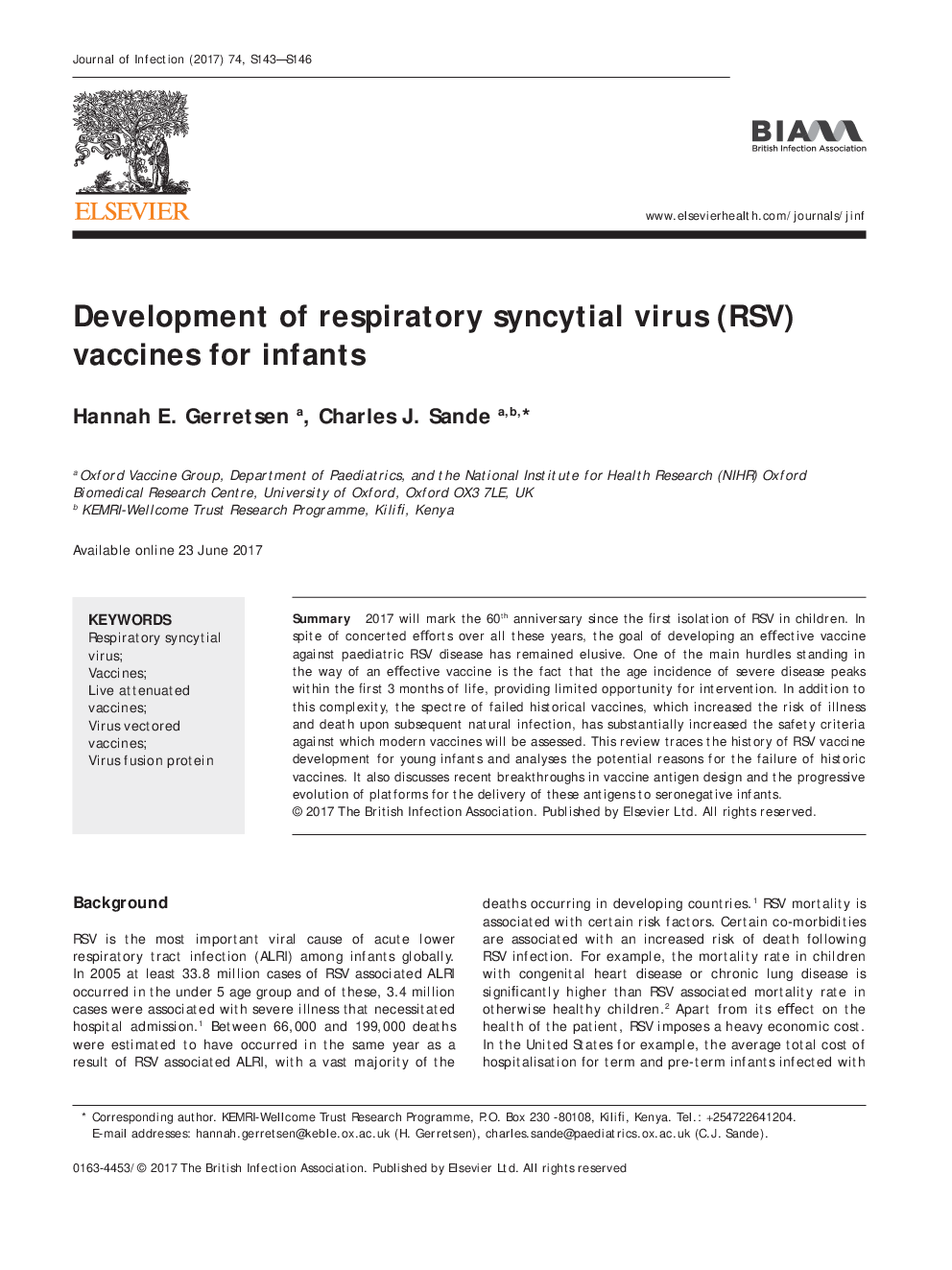| Article ID | Journal | Published Year | Pages | File Type |
|---|---|---|---|---|
| 5668797 | Journal of Infection | 2017 | 4 Pages |
Summary2017 will mark the 60th anniversary since the first isolation of RSV in children. In spite of concerted efforts over all these years, the goal of developing an effective vaccine against paediatric RSV disease has remained elusive. One of the main hurdles standing in the way of an effective vaccine is the fact that the age incidence of severe disease peaks within the first 3 months of life, providing limited opportunity for intervention. In addition to this complexity, the spectre of failed historical vaccines, which increased the risk of illness and death upon subsequent natural infection, has substantially increased the safety criteria against which modern vaccines will be assessed. This review traces the history of RSV vaccine development for young infants and analyses the potential reasons for the failure of historic vaccines. It also discusses recent breakthroughs in vaccine antigen design and the progressive evolution of platforms for the delivery of these antigens to seronegative infants.
